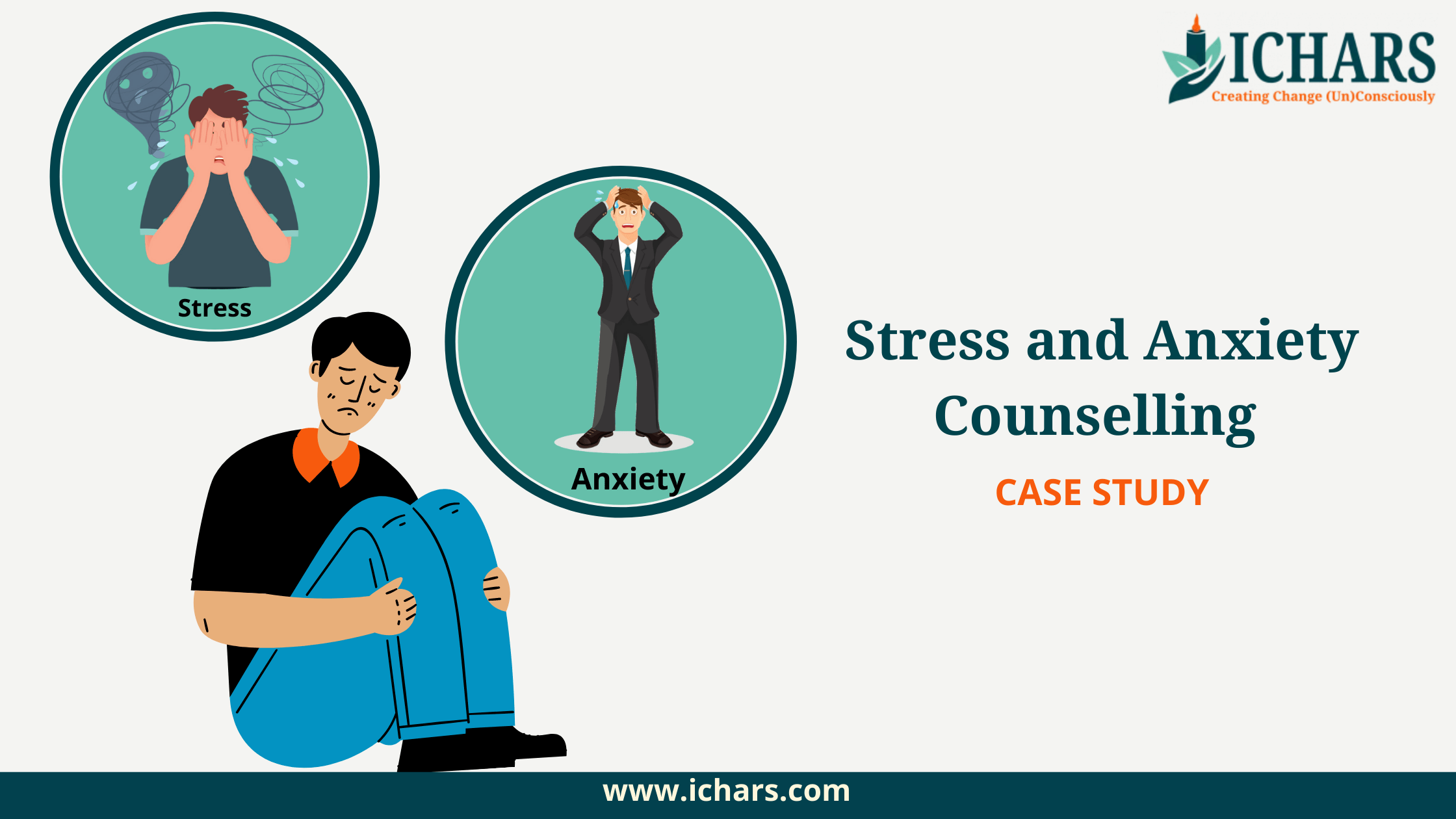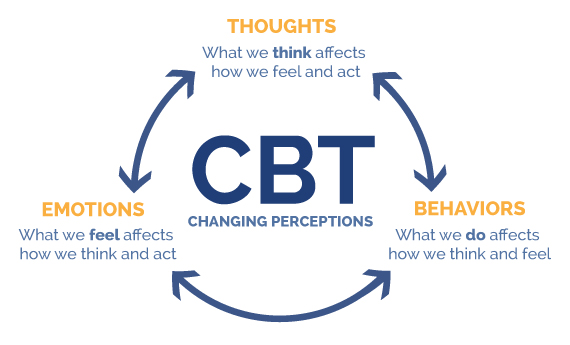How a licensed therapist for anxiety can help you overcome daily stress
How a licensed therapist for anxiety can help you overcome daily stress
Blog Article
Exploring Different Approaches in Therapy for Anxiousness Disorder for Lasting Change
When dealing with stress and anxiety problems, it's vital to discover a variety of counseling strategies. Each technique offers special understandings and devices to aid you manage your signs and symptoms successfully. You might discover that combining strategies can yield the best outcomes. Understanding the nuances of these methods is essential to promoting lasting adjustment. What if the appropriate mix could launch a new level of psychological wellness for you?
Comprehending Anxiety Problems: A Short Introduction
Stress and anxiety conditions, which impact countless individuals worldwide, can greatly affect daily life. You might experience overwhelming sensations of concern or fret that appear irrepressible. These sensations can cause physical signs like a racing heart, sweating, or even dizziness. Usual kinds of anxiety problems include generalised stress and anxiety disorder, panic condition, and social anxiety condition. Each has special indicators, yet they all share a tendency to interrupt your routine and relationships.Understanding the root creates of your stress and anxiety is vital. It may stem from genetics, mind chemistry, or life experiences. Recognizing your triggers can aid you manage your responses much better. It is essential to keep in mind that you're not the only one in this battle. Lots of people face similar difficulties, and seeking assistance is a solid action towards feeling much better. By discovering anxiety problems, you're currently on the path to understanding and managing your problem better.
Cognitive-Behavioral Therapy: Challenging Unfavorable Idea Patterns
In Cognitive-Behavioral Treatment, you'll start by identifying the unfavorable idea causes that add to your stress and anxiety. You'll work on replacing them with even more positive choices when you acknowledge these thoughts. Together, you'll develop efficient coping strategies to help handle your anxiousness in everyday circumstances.
Recognizing Adverse Idea Triggers

Recognizing the specific triggers behind your negative thoughts can be important in taking care of stress and anxiety when you experience moments of distress. Beginning by taking notice of situations that prompt feelings of worry or fear. Is it a crowded room, an upcoming target date, or a conversation with certain people? Write these circumstances in a journal. This will certainly help you identify patterns in your reasoning. Likewise, notice physical sensations that accompany your adverse ideas, like an auto racing heart or tightness in your chest. By pinpointing these triggers, you obtain understanding into what's fueling your anxiety. Recognizing these links is the initial step in testing those ideas and eventually gaining back control over your emotional responses.
Changing Thoughts With Positives
Challenging unfavorable idea patterns is a necessary step in transforming your frame of mind and lowering anxiety. You may usually find on your own trapped in cycles of self-doubt or tragic thinking. Instead of allowing these thoughts determine your feelings, technique replacing them with realistic alternatives or favorable affirmations. For example, when you think, "I can not handle this," shift it to, "I can take care of difficulties one action at once." This straightforward change can considerably influence your emotion. On a regular basis identifying and countering these negative thoughts assists create a healthier interior dialogue. Keep in mind, it requires time and initiative, but continually practicing this technique can cause enduring adjustment, encouraging you to encounter stress and anxiety with restored self-confidence and strength.
Structure Coping Strategies Together
Changing negative thoughts is just the beginning of handling anxiety efficiently. To develop enduring modification, you need to develop coping techniques that empower you. Cognitive-Behavioral Therapy (CBT) aids you recognize and test those purposeless idea patterns. Together, you and your counselor can explore how these thoughts impact your feelings and behaviors.Start by establishing functional strategies, like journaling or mindfulness workouts, that permit you to confront anxiety head-on. When you face your anxieties gradually, you'll learn to react differently.

Mindfulness and Acceptance-Based Approaches: Cultivating Present-Moment Understanding
As you navigate the intricacies of stress and anxiety, incorporating mindfulness and acceptance-based techniques can considerably boost your capability to grow present-moment awareness. By concentrating on the present moment, you'll locate that you can observe your thoughts and sensations without judgment (Counseling services for anxiety). This method aids you acknowledge your stress and anxiety without really feeling overwhelmed by it.Engaging in mindfulness workouts, such as deep breathing, body scans, or guided meditations, permits you to ground on your own in your existing experience. Acceptance-based techniques urge you to embrace your feelings as opposed to deal with against them. They lose their power over you.Incorporating these practices into your day-to-day routine can transform just how you respond to stress and anxiety when you accept your feelings. You'll develop strength and discover to navigate difficult circumstances with better convenience. Ultimately, cultivating present-moment awareness lays the foundation for long lasting modification, encouraging you to lead an extra meeting life
Direct Exposure Therapy: Confronting Concerns Gradually
Direct exposure treatment helps you confront your fears in a gradual method, making it much less overwhelming. You'll discover strategies to deal with anxiety-provoking circumstances detailed, while additionally building coping strategies to handle your reactions. This technique equips you to take control and minimize stress and anxiety in time.
Gradual Direct Exposure Strategies

When dealing with anxiety, progressively facing your fears can be an effective way to reclaim control. This method, referred to as steady exposure, involves slowly exposing yourself to the circumstances or objects that trigger your anxiousness. Beginning with less daunting scenarios and progressively function your means as much as even more challenging ones. For circumstances, if you hesitate of public talking, you might begin by talking in front of a mirror, after that progress to sharing ideas with a pal, and eventually attend to a small team. Each step aids desensitize you to the concern, developing your confidence with time. Keep in mind, it's essential to pace on your own and celebrate small victories as you move with this process, reinforcing your ability to handle anxiousness properly.
Structure Coping Techniques
Structure reliable coping methods is essential for taking care of anxiousness, specifically as you face your fears progressively - Counseling services for anxiety. One effective technique is direct exposure therapy, where you start by encountering your fears in a regulated way. Start with less daunting scenarios and gradually work your way as much as even more tough circumstances. This gradual direct exposure aids desensitize you to anxiousness sets off, making them much less overwhelming.Incorporate leisure methods, such as deep breathing or mindfulness, to calm your mind during exposure. Track your progression, celebrating tiny victories along the road to boost your self-confidence. Bear in mind, it's alright to take your time; the goal isn't perfection however stable renovation. By building these strategies, you'll encourage yourself to navigate stress and anxiety and accept life a lot more fully
Psychodynamic Therapy: Revealing Origin Reasons of Stress And Anxiety
Psychodynamic treatment discovers the unconscious mind, revealing the source of your stress and anxiety. By analyzing your thoughts, sensations, and past experiences, this approach helps you discover underlying conflicts and unsolved problems that may add to your existing anxiousness. You'll function with a therapist to investigate childhood years experiences, relationships, and emotional patterns that shape your reactions today.As you get understanding right into these much deeper layers of your subconscious, you'll begin to recognize just how previous events influence your present actions. This understanding can bring about catharsis, allowing you to refine feelings you might have suppressed.Through the therapeutic relationship, you can additionally determine defense reaction that might have established gradually, supplying a clearer path to change. Ultimately, psychodynamic therapy furnishes you with the devices to resolve your stress and anxiety at its core, advertising enduring change in your emotional well-being.
All Natural and integrative Approaches: Integrating Strategies for Greater Efficiency
Integrating different restorative methods can boost your trip towards taking care of stress and anxiety a lot more efficiently. By integrating components from cognitive-behavioral therapy, mindfulness methods, and all natural techniques, you can create a personalized method that addresses your special requirements. You might use cognitive-behavioral strategies to challenge negative idea patterns while integrating mindfulness workouts to ground yourself in the existing moment.Additionally, exploring alternative techniques such as yoga exercise or meditation can advertise leisure and decrease anxiousness signs and symptoms. This mix permits you to establish better self-awareness and resilience.Experimenting with these diverse methods can assist you uncover what resonates most with you. Keep in mind, it's regarding locating a synergy that functions, instead of sticking to a solitary method. This integrative technique not just offers immediate alleviation however additionally promotes long-lasting abilities for handling anxiousness, encouraging you to redeem control over your life.
The Function of Assistance Systems: Building Durability With Connection
While it may seem that taking care of anxiousness is a solitary journey, having a solid support group can play a vital role in your strength. Surrounding on your own with compassionate pals, family, or support system develops a safe room where you can freely share your sensations and experiences. When you connect with others, you advise yourself that you're not the only one in this struggle.These connections provide motivation and can provide sensible coping approaches that have benefited others. It's additionally an opportunity to gain perspective; pals can assist you see circumstances in different ways, reducing sensations of isolation.Moreover, emotional support fosters a feeling of belonging, which can significantly relieve stress and anxiety symptoms. By leaning on your support group, you can construct resilience and deal with obstacles more properly. Remember, connecting for assistance suggests strength, and it can make all the difference in your journey towards managing stress and anxiety.
Regularly Asked Concerns
What Are the Common Signs of Stress And Anxiety Problems?
You could experience restlessness, tiredness, trouble concentrating, impatience, get more info muscle mass tension, and rest disruptions. Physical signs and symptoms can consist of quick heart beat, sweating, and shivering. Recognizing these indications early can assist you look for ideal support and treatment.
For How Long Does Treatment Normally Last for Anxiousness Problems?
Treatment for anxiousness problems typically lasts anywhere from a few weeks to several months. It really depends on your individual requirements, progress, and the methods your specialist uses to help you manage your stress and anxiety successfully.
Can Medication Be Utilized Alongside Therapy for Anxiety?
Yes, drug can definitely be used along with treatment for anxiousness. Combining both techniques often boosts treatment performance, helping you take care of signs while discovering underlying issues via therapy (Counseling services for anxiety). Always consult your doctor for individualized suggestions
Are There Self-Help Strategies for Taking Care Of Anxiety?
Yes, there are numerous self-help approaches for managing stress and anxiety. You can practice mindfulness, participate in normal exercise, maintain a balanced diet regimen, establish a routine, and utilize deep breathing strategies to help in reducing anxiousness signs and symptoms successfully.
Exactly how Do I Know if I Need Specialist Aid for Anxiety?

Report this page